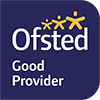Our approach to Reading & Phonics
Phonics
Phonics is a way of teaching pupil to read quickly and skilfully. It is essential that our approach to teaching phonics and reading is accessible to all pupils, regardless of background. They are taught how to:
- recognise the sounds that each individual letter represents;
- identify the sounds that different combinations of letters make – such as ‘sh’ or ‘oo’; and
- blend these sounds together from left to right to make a word.
Pupils can then use this knowledge to ‘de-code’ new words that they hear or see. This is the first important step in learning to read.
At Mountbatten, we believe that all our pupils can become fluent and confident readers and writers. This is why we teach reading through Little Wandle Letters and Sounds Revised, which is a systematic synthetic phonics programme. We start teaching phonics in Nursery and Reception and follow the Little Wandle Letters and Sounds Revised validated scheme. This ensures pupil build on their growing knowledge of the alphabetic code, mastering phonics to read and spell as they move through school. As part of this approach we use Collins Big Cat phonically decodable books matched to learning in phonics. Both digital and hard copies of the reading materials are used in school and at home.
As a result, all pupils are able to tackle any unfamiliar words as they read. At Mountbatten, we also model the application of the alphabetic code through phonics in shared reading and writing, both inside and outside of the phonics lesson and across the curriculum. We have a strong focus on language development for our pupils because we know that speaking and listening are crucial skills for reading and writing in all subjects.
Any pupil who needs additional practice has daily keep-up support, taught by a fully trained adult. Keep-up sessions match the structure of class teaching, and use the same procedures and resources, but in smaller steps with more repetition, so that every pupil secures their learning.
We timetable daily phonics lessons for any pupil in Year 2 or 3 who is not fully fluent at reading or has not passed the Phonics Screening Check. These pupils urgently need to catch up, so the gap between themselves and their peers does not widen. We use the Little Wandle Letters and Sounds Revised assessments to identify the gaps in their phonic knowledge and teach to these. If any pupil in Year 3 to 6 has gaps in their phonic knowledge when reading or writing, we plan phonics ‘catch-up’ lessons to address specific reading or writing gaps. These short, sharp lessons last 10 minutes and take place at least three times a week.
Reading
Reading has a high priority in school and we aim for all pupils to read widely and often across a range of subjects to a high standard. This necessitates developing both word-reading skills and comprehension skills in pupils, as well as enabling every pupil to access a wide range of high-quality texts by a wide selection of authors.
Within Reception and key stage 1 the aim is to ensure that all pupils are able to read with fluency, stamina, confidence and develop the reading skills needed to apply to a wide range of books. Pupils read a range of age and stage appropriate reading scheme books which are phonetically decodable. These books link to the phonic scheme, published by Collins.
In Reception pupils access texts through story-time and role play areas and read reading scheme books regularly with an adult. In Year 1 and 2 daily guided reading uses age and stage appropriate texts with pupils working in small groups to develop comprehension as well as applying fluency and decoding skills. Alongside this, pupils engage in discussions about books to provide opportunities to discover authors and develop comprehension skills.
As the pupils enter key stage 2, they continue to read age and stage appropriate reading scheme books before moving onto more challenging texts.
In key stage 2, we use a five-day cycle for guiding reading to enable pupils to develop text analysis, vocabulary, evidence collection, comprehension and a stamina for reading. Each term pupils have a focused fiction text which is supplemented by non-fiction and poetry texts.
Reading outside of guided reading lessons is very important to us, and the pupils are expected to read at least three times each week at home with the support of parents. Pupils read decodable books or age and stage appropriate reading scheme books at home throughout EYFS, KS1 and lower KS2 as well as a sharing book, which parents can read to their child for pleasure. When pupils are fluent, confident and competent readers they are able to select free-choice books as their home reading book. We also have a group of reading volunteers who listen to pupils read on a 1:1 basis each week. We believe it is important to provide pupils with as many opportunities to read as possible. During the week, pupils are also given the chance to choose their own books to read on their own and to listen to a text as a class.
Each classroom has an engaging reading area and we have a well-stocked KS1 and KS2 library with new books added regularly. All classes are given the chance to visit the libraries weekly and choose books to read in school.
We believe it is important to celebrate reading, so each week in our Celebration Assemblies each teacher chooses a pupil who has impressed them with reading during the week. The pupils are able to choose a prize from a wide range of books which they are able to keep and take home to enjoy.
Below are some documents you may find useful:

“Pupils say they feel safe in school.”

“There are respectful relationships between adults and pupils.”

“Leaders have thought carefully about the curriculum plans they have introduced.”

“Teachers appreciate the support they receive from subject leaders to help them improve their teaching.”

“The school is calm and orderly. Pupils walk around school sensibly and are courteous to one another.”

“Pupils learn how to keep safe when using the internet.”

“The school enjoyed recent success when the computing club won a local area competition using their coding skills.”

“Staff work closely with professionals from external agencies to provide support for pupils with SEND.”

“There is a strong team culture within the school.”

“Children start to learn to read as soon as they enter the school.”

“Leaders have considered what pupils might need to know to broaden their understanding of the world around them.”

“Leaders work well
with members of the multi-academy trust to support staff.”

“Pupils recommend the school to their friends.”

“Curriculum plans are well sequenced.”

“Pupils enjoy learning about a wide range of subjects.”

“The early years environment is inviting and well organised.”

“Pupils listen carefully to what adults say. They join in class discussions enthusiastically.”

“Teachers check what pupils have learned and remembered each term.”

“There are a wide range of school clubs.”

“Adults help pupils who fall behind.”

“Subject leaders are knowledgeable about their subjects.”

“Staff encourage
pupils to be independent from an early age.”

“Pupils enjoy attending school.”

“Staff are well trained in teaching children to read.”

“Leaders and teachers make regular checks to see how well pupils with special educational needs and/or disabilities (SEND) are doing.”

“Children settle into school quickly.”

“Senior leaders, alongside the multi-academy trust, have provided subject leaders with training.”

“Staff welcome the highquality training they receive. They feel proud to work in the school.”

“The residential visit to Robinwood encourages pupils to experience new challenges and work collaboratively with their friends.”

“Pupils access a range of visits and activities beyond their own experiences.”

“The ‘Mountbatten 50’ challenges pupils to complete a range of interesting activities
before they leave the school.”

“There is a clear focus on the teaching of early mathematics and reading.”

“Pupils say that behaviour is good.”

” Some teachers check carefully to find out which pupils are stuck and which pupils need further challenge during lessons.”

“Pupils support each other well when they are completing their work.”

“Teachers who are new to the school welcome the support they receive.”



